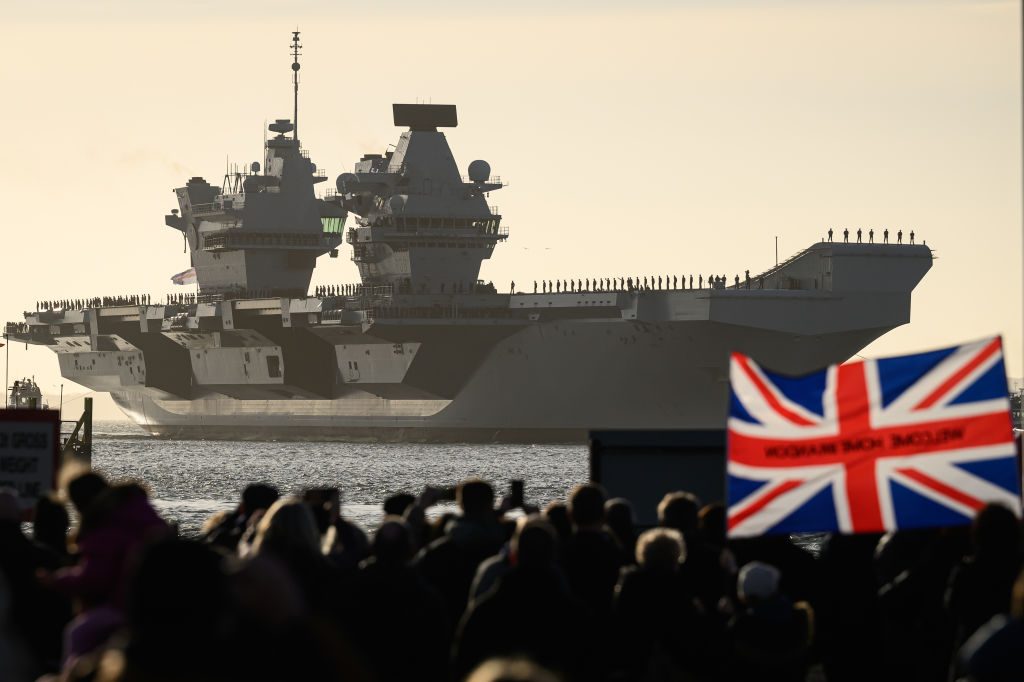Perhaps it’s because I recently finished Chamberlain and the Lost Peace, John Charmley’s revisionist history of British policy during appeasement, but we really are long overdue a re-assessment of our interwar leaders — if only to cast a cold, unflattering light on their modern successors.
Whatever their shortcomings, the likes of Neville Chamberlain and Lord Halifax took seriously the enormity of the task of rearmament. They were preoccupied with making sure that British rearmament was adequate and fiscally sustainable, and that any eventual war was fought on winnable ground. Today, every politician fancies himself or herself as the modern Winston Churchill. Unfortunately, they seem to possess many of the great man’s shortcomings — especially his often unrealistic bellicosity — and few of his virtues.
By way of example, consider Sunday’s announcement by Defence Secretary John Healey that the United Kingdom would commit itself to combat to defend the freedom of Taiwan. Few would argue that the defense of a democratic ally isn’t a noble policy. It also makes great strategic sense, on paper, given that the Republic of China is a global chokepoint for microchips and other hardware critical to the operation of advanced systems in the West.
But is it remotely realistic for Britain to strike such a posture when the United States, upon which Taiwan’s future would actually hinge in the event of a serious Chinese invasion, has not itself committed to action?
It’s worth remembering that our generals don’t think the British Army could deploy 10,000 troops to Ukraine even on peacekeeping duties. But that matters less than one might think: almost every British government for the past 300 years or more would have preferred a naval conflict on the other side of the planet to a land war in Europe.
That preference, however, hinged on a Royal Navy which exists today mostly as a memory. A better example of our present weakness is that the “Anglo-American” task force protecting Red Sea shipping off Yemen contains only one British vessel, HMS Diamond — and she can’t attack land targets because the Ministry of Defence never installed the proper missiles.
Healey might once have nodded along to all of this. When the previous Conservative Government negotiated the AUKUS pact with Australia and the US, one of its highest-profile critics was none other than the current Defence Secretary, whose position was described by an interviewer thus: “Britain can’t be a strong military force in the Indo-Pacific and the Euro-Atlantic simultaneously.” Additionally, he said the country needed to fill a “Europe-shaped hole” in its foreign and defense policy.
All that has changed since then is that Chancellor Rachel Reeves cancelled the Tories’ planned £20 billion real-terms increase in defense spending when Labour took office last year, and has not come close to replacing it with hazy pledges to bring spending up to 3.5% at some point. Logically, therefore, we should conclude that Healey stands by his original assessment, and that his announcement today represents a serious shift in British defense policy away from the Euro-Atlantic — which is to say, from Ukraine. Does anyone think Keir Starmer is about to announce that? Oh, and don’t forget Iran!
It would also mean taking serious steps to insulate ourselves against Chinese retaliation, yet only a couple of months ago Reeves was grubbing for investment in Beijing. Meanwhile, Deputy Prime Minister Angela Rayner last month personally intervened to approve a new Chinese “super-embassy” located dangerously close to critical information links to the City of London.
The most generous possible interpretation of this is that Healey is trying to write a check in the hope of forcing the United States to cash it. More likely, it’s just another example of a political pseudo-event, where the announcement is all that matters.











Join the discussion
Join like minded readers that support our journalism by becoming a paid subscriber
To join the discussion in the comments, become a paid subscriber.
Join like minded readers that support our journalism, read unlimited articles and enjoy other subscriber-only benefits.
Subscribe